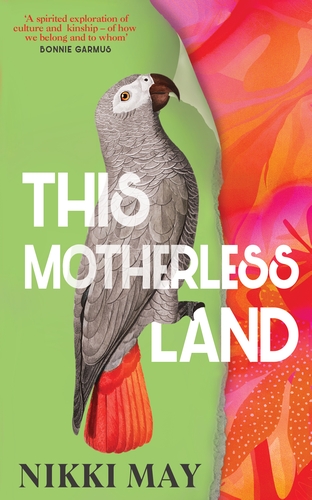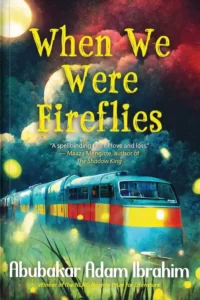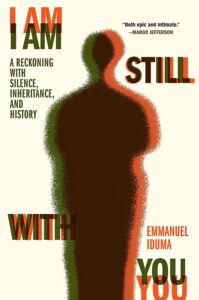Funke Oyenuga is determined to blend in. A mixed-race girl in late 1970s Nigeria, she is the stark opposite of her British mother, who is red-headed, exuberant, and always seems to stand out. Despite the disapproval of her parents’ marriage from both sides, theirs is a happy family, living in Lagos, days filled with trips to Tarkwa Bay and the exclusive Ikoyi Club, bicycle racing, and swanky parties with expatriate wives and family friends. Funke’s world is torn apart when her mother is killed in a car accident. Her reeling father sends her to live with her mother’s estranged family in England at The Ring, their Somerset home.
The family home is a bare, cold, nearly decrepit house, with her spiteful aunt Margot who blames Funke’s mother running off with a Nigerian man for her wretched lot in life, grandparents who yield to the caprices of their remaining daughter, and her cousins Dominic and Liv. Striking in her resemblance to Funke’s mother, not so much in looks as in temperament, Liv is the sole glimmer of warmth. Subject to neglect at best, vitriol at worst, homesick Funke attempts to settle into her new reality and reluctantly takes on her English middle name, Kate. Liv, decided to be nothing like her entitled mother and brother, is delighted to meet her newly discovered cousin. The two soon strike up a friendship.
Written with sharp observation and in crisp language, Nikki May’s sophomore novel This Motherless Land is humorous and gutting, a page turner and a searing look at sisterhood, belonginess, race, and the many shapes of loss. With alternating perspectives, we follow Funke and Liv as childhood segues into three different years across two decades, the past begins to colour their respective loves and lives, and an intergenerational rift threatens to undo their bond.
This is an entertaining, heart-wrenching book, rife with punchily rendered bits of cultural insight and Austen-esque misunderstandings and revelations (fitting, in a Mansfield Park retelling). May’s writing is most fun when she draws the parallels between Nigeria and England, dressing her observations in witty forms. From the food to the antics of men and the “long-leg” connections of the rich and powerful, she deftly examines their divides and overlapping sensibilities.
Characterized by what must be an exhausting malleability, Funke goes from being a mixed-race girl in Nigeria to a mixed-race girl in England, resolving to fit into both contexts, forced to redefine home again and again. “As safe as houses,” her mother used to say, and it is a sentiment she comes to understand as she moves between places and identities. She is situated in two cultures, both of which May treats lovingly yet candidly. She learns to be shiftable, her different names a reflection of each distinct self. In Funke, May illustrates the implication of name, the cost of movement, a young woman’s yearning to belong.
While Liv is not reduced to her whiteness, May does not shirk away from the character’s inevitable haze of privilege. Although convinced she is nothing like her mother, Liv sometimes unwittingly participates in breeding the otherness Funke inhabits. She initially finds Funke’s tales of a wonderful life in Lagos dubious, encourages using her English name, and is oblivious to the neglect she suffers. Much of her ignorance could be chalked up to youth. But some issues are inescapable; adulthood brings the torrent that is guilt and struggles of self-worth, and we watch a woman grapple with grief and fight to emerge whole.
Both women occupy a focal place in the other’s narrative. Their relationship is pulled taut as much by the past as by the motives of other characters. It is external forces as much as inherent differences, race and privilege as much as it is misunderstanding. In this novel, the lines are blurred. May charts the journeys of two women whose relationship is given no breathing room, no space to “flourish,” and yet a poignant tale takes hold, of a sisterhood that surmounts space and time.
Sadly, some of This Motherless Land reads undone. At times, critical moments feel rushed, resolutions half-baked. Aunt Margot, a foil to the thoughtful character work of May’s protagonists, is spared complexity and relegated to an almost cartoonish villainy that feels misplaced in the story. Dominic, as well. It is a slight that takes from the dynamic at the centre of the novel, but one that thankfully does not take much. ♦
If you love what you just read, please consider making a PayPal donation to enable us to publish more like it.





